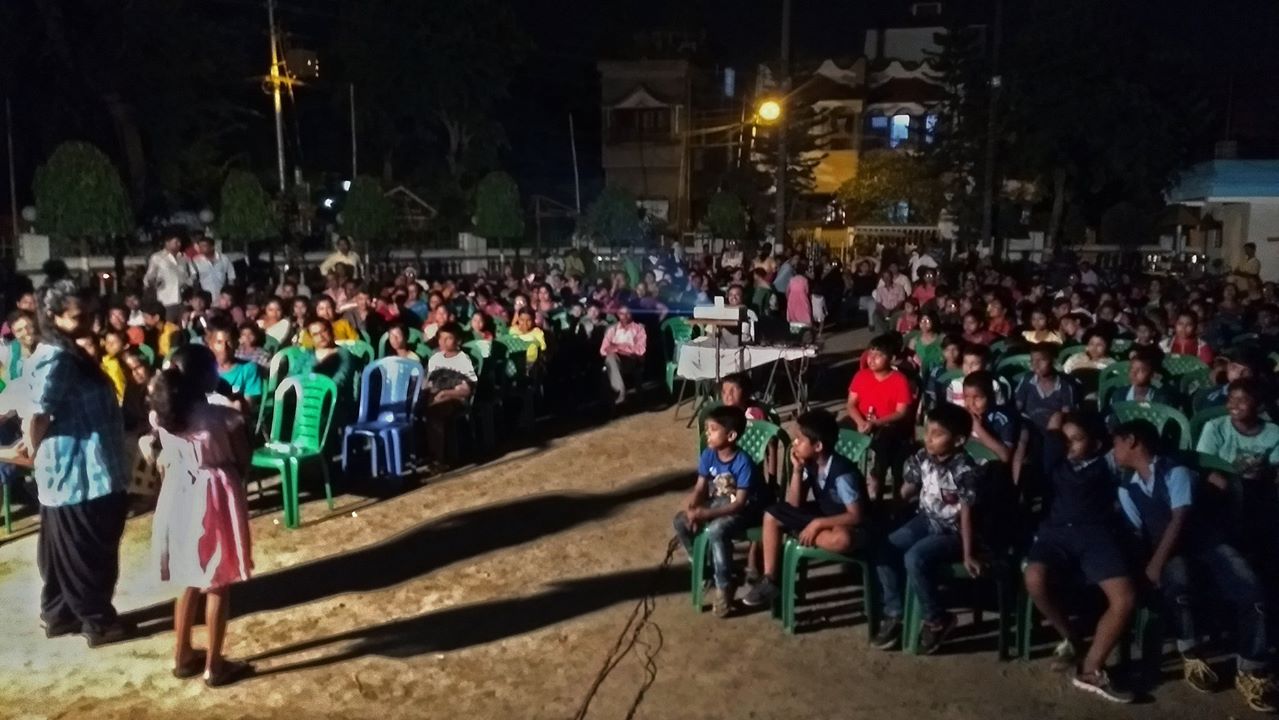Little Cinema Diaries- I
We all watch films. Some of us study them, theorising extensively on frames, actions and dialogue. Some of us watch them simply as a source of entertainment. Films are in fact, deeply polarising as well as unifying. Depending of course, on the kind of film you are watching.
I grew up with films. Of various kinds. Some I was made to watch—like Gone With the Wind. Some I sneaked in to watch—like Qayamat Se Qayamat Tak. Many I learnt from. Free Willy taught me a little about whales. Akira Kurosawa’s films taught me ways of seeing. But I do remember one thing. That as a child, there was never any discussion about the film. What I understood from it, what I remembered of it. At least never as a group.
Little Cinema, an initiative of People’s Film Collective attempts to do that. Take films to young people. Films that work on different levels. After each film, is an all important discussion. What was the film about? Did the audience relate with anything in the film? The initiative uses film to develop critical thinking in young people, more often than not, about issues that are current and relevant in their lives.
One such screening was at Peyarabagan slum, the second largest in Kolkata. It was my first ever open air screening—on the street, in the thick of things. We arrived a couple of hours early to set up and were almost immediately greeted by a group of girls. This group became our self-appointed guardians, volunteering to go house to house, calling for people to come and watch the films. The children were fascinated by the mike (naturally, who wouldn’t be?) and soon, we had some impromptu performances.
As dusk settled in and the light was finally suitable for the screening, we began. Each film elicited reactions from the children. No holds barred uninhibited reactions. Reactions that might have earned them a rebuke in school—honest reactions. They were boisterous, fun and loud. I found myself sitting on the tarpaulin sheet with one child on my lap, the second leaning against me munching biscuits and a third whispering observations into my ear—was the fish really magical, he asked. Did those boys really kill the other for not accepting something that was wrong? He didn’t wait for answers to his questions, clearly making up his own mind about what was going on. I was happy to let go.
I had to shout to make myself heard. But I realised that it wasn’t really necessary. Each child watched each film. They understood, they questioned. They did not like. They liked. And what was very important was that they shared. They expressed their thoughts later on, on sheets of paper, mainly through art. This again, is fascinating.
Film does that—it reaches out. And affects everyone on different levels and intensities. And taking such films to children should have a lasting impact. In one way or the other. Encouraging them to think critically and express themselves. And have a whole lot of fun doing it.
Report: Paroma Sengupta


